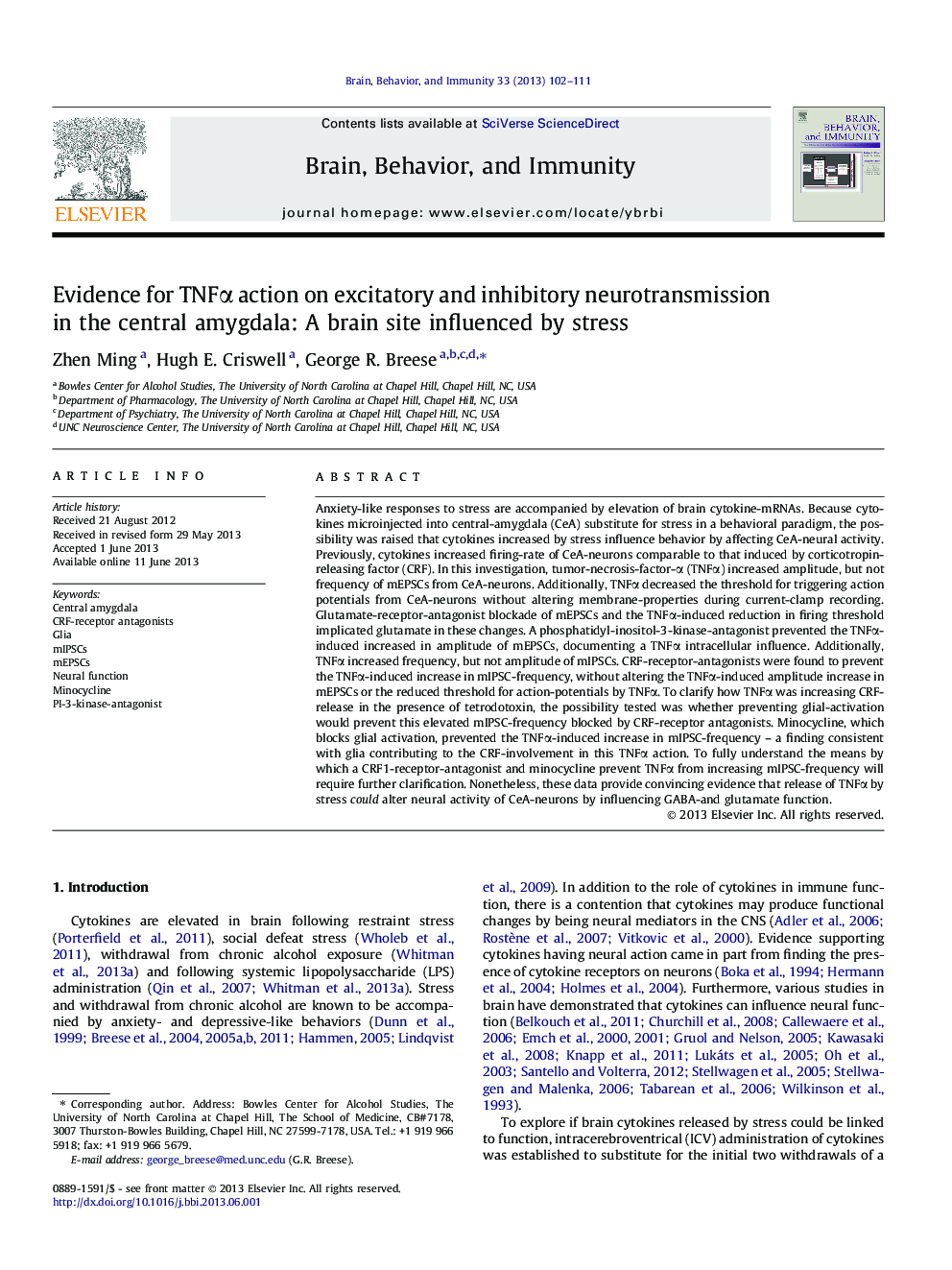| Article ID | Journal | Published Year | Pages | File Type |
|---|---|---|---|---|
| 7281947 | Brain, Behavior, and Immunity | 2013 | 10 Pages |
Abstract
Anxiety-like responses to stress are accompanied by elevation of brain cytokine-mRNAs. Because cytokines microinjected into central-amygdala (CeA) substitute for stress in a behavioral paradigm, the possibility was raised that cytokines increased by stress influence behavior by affecting CeA-neural activity. Previously, cytokines increased firing-rate of CeA-neurons comparable to that induced by corticotropin-releasing factor (CRF). In this investigation, tumor-necrosis-factor-α (TNFα) increased amplitude, but not frequency of mEPSCs from CeA-neurons. Additionally, TNFα decreased the threshold for triggering action potentials from CeA-neurons without altering membrane-properties during current-clamp recording. Glutamate-receptor-antagonist blockade of mEPSCs and the TNFα-induced reduction in firing threshold implicated glutamate in these changes. A phosphatidyl-inositol-3-kinase-antagonist prevented the TNFα-induced increased in amplitude of mEPSCs, documenting a TNFα intracellular influence. Additionally, TNFα increased frequency, but not amplitude of mIPSCs. CRF-receptor-antagonists were found to prevent the TNFα-induced increase in mIPSC-frequency, without altering the TNFα-induced amplitude increase in mEPSCs or the reduced threshold for action-potentials by TNFα. To clarify how TNFα was increasing CRF-release in the presence of tetrodotoxin, the possibility tested was whether preventing glial-activation would prevent this elevated mIPSC-frequency blocked by CRF-receptor antagonists. Minocycline, which blocks glial activation, prevented the TNFα-induced increase in mIPSC-frequency - a finding consistent with glia contributing to the CRF-involvement in this TNFα action. To fully understand the means by which a CRF1-receptor-antagonist and minocycline prevent TNFα from increasing mIPSC-frequency will require further clarification. Nonetheless, these data provide convincing evidence that release of TNFα by stress could alter neural activity of CeA-neurons by influencing GABA-and glutamate function.
Related Topics
Life Sciences
Immunology and Microbiology
Immunology
Authors
Zhen Ming, Hugh E. Criswell, George R. Breese,
